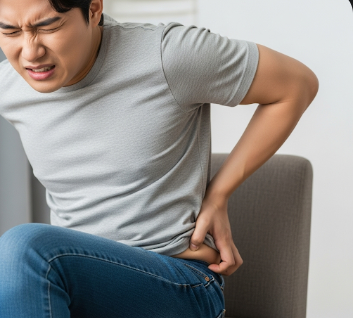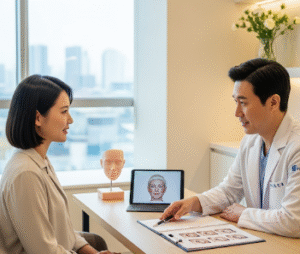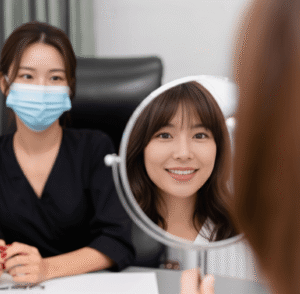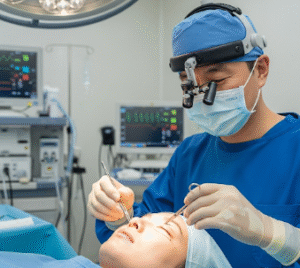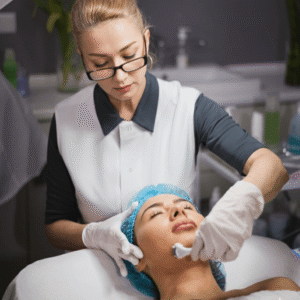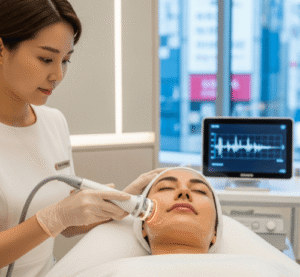Overview
Pruritus ani is the medical term for itching around the anus, a condition that can cause significant discomfort and distress. It affects people of all ages but is more common in adults. The intensity of itching can range from mild to severe, and persistent scratching can lead to skin irritation, inflammation, and secondary infections.
In Korea, specialized dermatology and proctology clinics offer comprehensive assessment, treatment, and lifestyle management strategies for pruritus ani, ensuring patients regain comfort and prevent recurrence.
➤ Itching around the anal region
➤ Can cause discomfort, embarrassment, and secondary infections
➤ Proper diagnosis is essential to treat underlying causes
Key Facts
➤ Pruritus ani can be acute or chronic, with chronic cases lasting more than six weeks.
➤ Common triggers include skin irritation, infections, dietary factors, and systemic diseases.
➤ Persistent scratching can lead to skin excoriation, bleeding, or thickening of the anal skin.
➤ Korean clinics provide topical therapies, hygiene guidance, and specialized investigations to manage and resolve symptoms.
➤ Effective treatment combines identifying the underlying cause, symptom relief, and preventive care.
What is Pruritus Ani?
Pruritus ani is an uncomfortable itching sensation around the anus caused by a variety of local, systemic, or lifestyle-related factors. While often benign, persistent pruritus ani may indicate underlying medical conditions that require attention.
➤ Primary Pruritus Ani:
➤ Occurs without an identifiable underlying disease.
➤ Often associated with excessive moisture, hygiene issues, or irritants.
➤ Secondary Pruritus Ani:
➤ Caused by infection, dermatological conditions, or systemic disease.
➤ Identifying the cause is critical for effective treatment.
What Symptoms Are Related To
Pruritus ani presents with itching and associated discomfort, sometimes accompanied by additional symptoms:
➤ Persistent or intermittent anal itching.
➤ Burning or stinging sensations around the anus.
➤ Redness, irritation, or rash due to scratching.
➤ Bleeding or oozing from excoriated skin.
➤ Thickened or leathery skin in chronic cases.
➤ Discomfort may worsen at night or after bowel movements.
➤ Psychological distress or embarrassment affecting quality of life.
What Causes / Possible Causes
Pruritus ani can be triggered by local, systemic, infectious, or lifestyle factors:
➤ Local Causes
➤ Poor hygiene or excessive cleaning with harsh soaps.
➤ Fecal irritation from diarrhea or incontinence.
➤ Moisture retention due to sweating or occlusive clothing.
➤ Hemorrhoids or anal fissures causing irritation.
➤ Dermatological Conditions
➤ Eczema or psoriasis affecting perianal skin.
➤ Lichen sclerosus or lichen planus causing chronic itching.
➤ Infections
➤ Fungal infections such as Candida.
➤ Bacterial infections secondary to skin breaks.
➤ Parasitic infections like pinworms, especially in children.
➤ Systemic Causes
➤ Diabetes mellitus, leading to increased susceptibility to infections.
➤ Liver or biliary disease, causing bile salt-related irritation.
➤ Thyroid disorders leading to dry skin and itching.
➤ Diet and Lifestyle Factors
➤ Spicy foods, caffeine, or alcohol may exacerbate itching.
➤ Sitting for prolonged periods or wearing tight clothing can increase moisture and friction.
When Should I See My Doctor
Consult a healthcare provider if:
➤ Itching persists beyond a few weeks despite good hygiene.
➤ Bleeding, pus, or severe irritation accompanies itching.
➤ Symptoms interfere with daily activities or sleep.
➤ There is a history of anal or colorectal disease.
➤ Recurrent infections or suspected systemic causes are present.
Early evaluation helps identify underlying conditions, prevent complications, and guide appropriate treatment.
Care and Treatment
Treatment depends on cause, severity, and patient compliance:
➤ General Care and Lifestyle Measures
➤ Maintain gentle hygiene, using water and mild cleansers.
➤ Keep the area dry and free from irritation.
➤ Avoid tight clothing and prolonged sitting.
➤ Diet modification to reduce spicy or irritating foods.
➤ Topical Therapies
➤ Steroid creams for inflammation and itching.
➤ Barrier ointments to protect irritated skin.
➤ Antifungal or antibacterial creams if infection is present.
➤ Treatment of Underlying Causes
➤ Address hemorrhoids, fissures, or dermatological conditions.
➤ Manage systemic conditions like diabetes or liver disease.
➤ Treat parasitic infections (e.g., pinworms) with appropriate medications.
➤ Behavioral and Supportive Measures
➤ Avoid scratching, which worsens irritation.
➤ Regular follow-up to monitor treatment effectiveness and prevent recurrence.
Treatment Options in Korea
Korea offers advanced proctology and dermatology services for pruritus ani with state-of-the-art diagnostics and treatment:
➤ Top Hospitals and Clinics
➤ Asan Medical Center (Seoul): Comprehensive evaluation for anal itching and underlying causes.
➤ Samsung Medical Center: Dermatological assessment, minimally invasive procedures, and infection management.
➤ Seoul National University Hospital (SNUH): Multidisciplinary care for chronic or recurrent pruritus ani.
➤ Yonsei Severance Hospital: Advanced therapies for skin conditions, infections, and systemic causes.
➤ Diagnostic Tools
➤ Skin biopsy or swabs for infection or dermatological evaluation.
➤ Blood tests for diabetes, liver function, or thyroid disorders.
➤ Endoscopic evaluation if structural anal or colorectal disease is suspected.
➤ Modern Interventions
➤ Topical therapies and prescription medications.
➤ Minimally invasive procedures for hemorrhoids, fissures, or skin lesions.
➤ Counseling on lifestyle and dietary modification to prevent recurrence.

